Vietnam Public Holidays: A Comprehensive Guide
Vietnam National Holidays offer a fascinating glimpse into the country’s rich culture, history, and traditions. Holidays in Vietnam include formal ceremonies and lively festivals.
These events are full of music, food, and joy. Each holiday shows the strong sense of community and pride among the Vietnamese people. Knowing about these holidays can help you enjoy the real and joyful moments in Vietnam. This is useful whether you are traveling or learning about the culture.
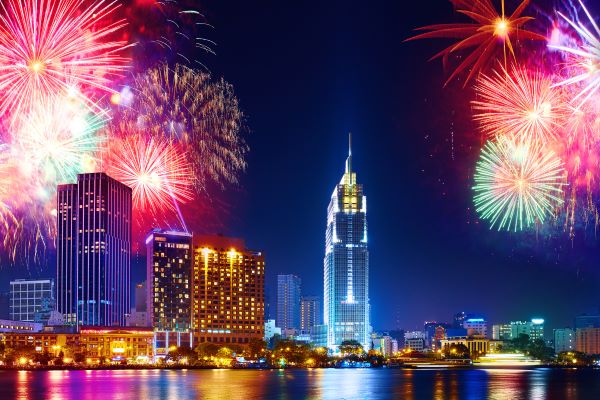
Discover the heart of Vietnam through its national holidays where culture, tradition, and celebration come alive
Are businesses closed during the public holidays?
On public holidays, official entities like schools, banks, notary offices, and administrative agencies are closed.
Most private businesses, like restaurants and hotels, are still open. However, many close for the Lunar New Year holiday.
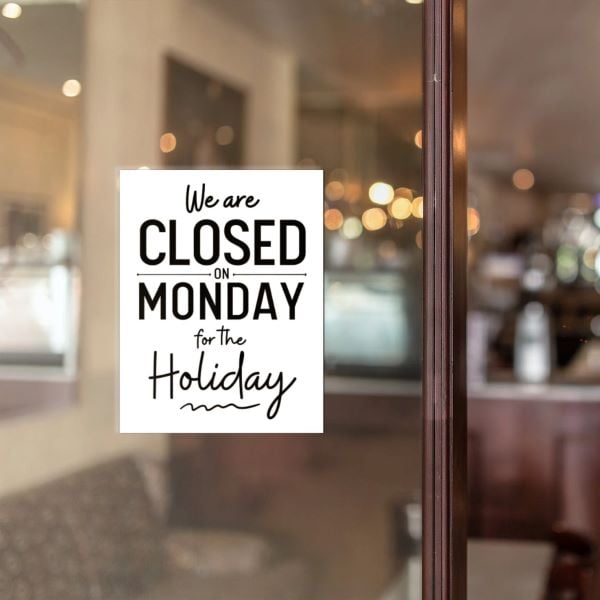
Government offices close on public holidays, but most restaurants and hotels stay open except during Tết
How do these public holidays impact you as travelers?
Below are the most common impacts of public holidays that travelers to Vietnam should be aware of:
- Applying for a visa just before or after a public holiday may cause delays. This happens because more applications are processed.
- If you arrive on a public holiday and authorities do not issue your visa, you cannot enter Vietnam.
- While you can still access ATMs for cash withdrawals, banks will close their in-person services.
- Popular tourist attractions, especially beaches, often attract local visitors who enjoy their days off.
- Many businesses shut down during the Tet holiday. This includes popular restaurants and cafes. Typically, they close their operations on both New Year’s Eve and New Year’s Day.
Public holidays in Vietnam
New Year’s Day
Date: January 1 (Gregorian Calendar)
New Year’s Day is a global celebration, and Vietnam joins in the festivities with its own flair. Today is about fresh starts, making resolutions, and cherishing moments with family. Many businesses close to allow employees to rest and prepare for the upcoming Lunar New Year.
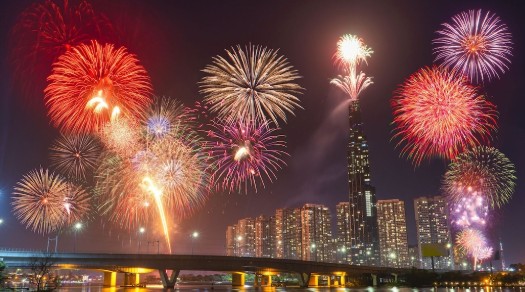
Ring in the New Year with dazzling fireworks, joyful reunions, and fresh beginnings across Vietnam
In Vietnam, people refer to New Year’s Day as Tết Dương Lịch, marking the initial public holiday of the year.
Typically, people observe this holiday for a single official day. If it occurs on a weekend, the company grants an additional day off.
On December 31, the atmosphere is lively and full of energy. In major cities such as Hanoi, Da Nang, and Ho Chi Minh City, people hold countdown parties. The celebrations feature spectacular fireworks, live musical performances, and vibrant light or drone displays.
On January 1, many people spend the day visiting family and friends, enjoying short trips, or relaxing at home. While January 1 is not Vietnam’s traditional new year, it is still an important time. A moment to think about the past year and set new goals for the year ahead exists.
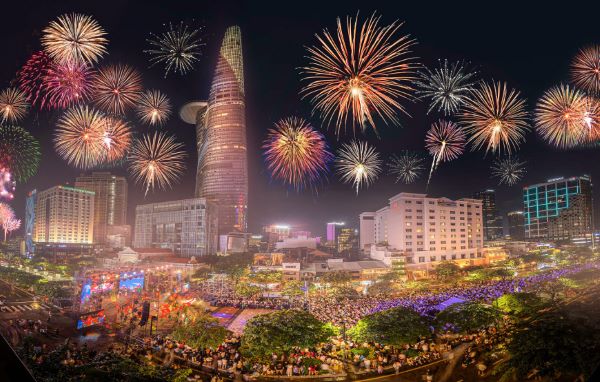
Vietnam welcomes the New Year with fireworks, music, and moments of reflection for a bright year ahead
Lunar New Year (Tet holiday)
Date: Late January or early February (based on the lunar calendar)
Tết Nguyên Đán (Vietnamese Lunar New Year) is the most important and cherished holiday in Vietnam, comparable to Christmas in the West or Chinese New Year in China. It marks the arrival of spring, a time for family reunions, ancestral worship, and joyful celebrations.
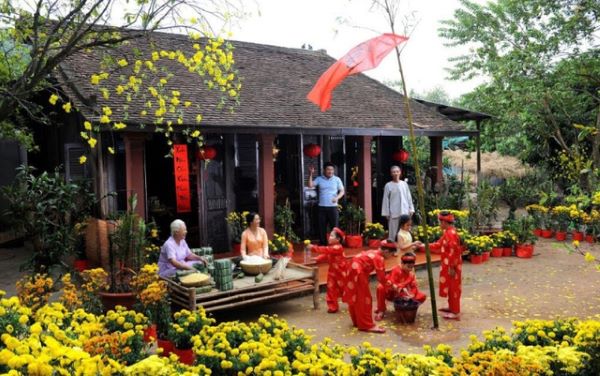
Tết Nguyên Đán a joyful time of family, luck, and new beginnings that fills Vietnam with color and hope
The holiday usually lasts about 7 days, but the exact duration can vary depending on government regulations. Festivities usually start a few days before New Year’s Eve.
This is around the 28th or 29th of lunar December. They can last until the 5th or 6th of lunar January. This time falls between mid-January and mid-February on the solar calendar.
In the days leading up to Tết, families clean and decorate their homes to sweep away bad luck and welcome good fortune. Streets burst into color with kumquat trees, peach blossoms, and yellow apricot flowers, symbolizing prosperity and happiness.
During Tết, individuals visit pagodas and temples to seek peace and fortune, while also paying homage to their ancestors.
They also visit relatives and friends to share good wishes. People give red envelopes (lì xì) filled with lucky money to children and elders, representing blessings for the new year.
Culinary experts make traditional dishes. They prepare bánh chưng (Trung cake), a customary square cake crafted from glutinous rice. They also make bánh tét, a cylindrical sticky rice cake. Families enjoy these dishes together.
Most businesses, schools, and government offices close for several days. This lets everyone enjoy the spirit of renewal, gratitude, and togetherness. These feelings define this special time of year.
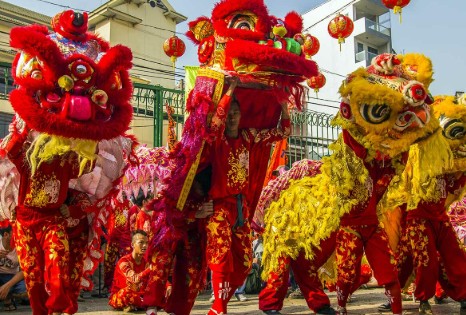
Tết Nguyên Đán the heart of Vietnam’s traditions, where families reunite and new blessings begin
Hung Kings Commemoration Day
Date: 10th day of the 3rd lunar month
Hùng Kings Commemoration Day is an important holiday in Vietnam. It honors and shows gratitude to the Hùng Kings, who are the legendary founders of the Vietnamese nation. The main celebration takes place at the Hùng Temple in Phú Thọ Province, where thousands of people gather each year to pay tribute.
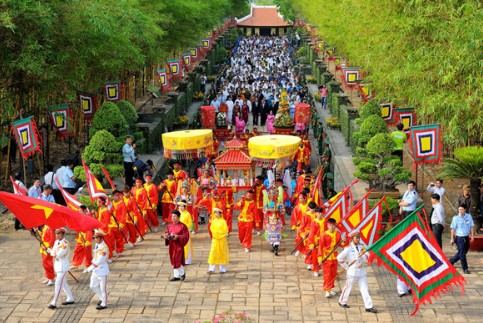
Hùng Kings Commemoration Day a proud tribute to Vietnam’s legendary founders and timeless unity
The festival features solemn parades, traditional offerings, folk songs, and cultural displays. These show the deep respect that Vietnamese people have for their ancestors. Both locals and visitors climb Nghĩa Lĩnh Mountain to offer incense at the temple. This shows their respect and pride in Vietnam’s heritage.
This national holiday occurs on the 10th day of the third lunar month and typically includes a day off.
If it occurs during the weekend, the company grants an additional day off. The event is important in history. It also reminds us of national unity and the lasting spirit of gratitude among Vietnamese people.
UNESCO recognized the worship of the Hùng Kings in Phú Thọ for its cultural importance. In 2012, UNESCO added it to the Intangible Cultural Heritage list. It became an officially recognized cultural treasure.
This recognition highlights its value to humanity. This honor celebrates Vietnam’s long-standing traditions and shared national identity.
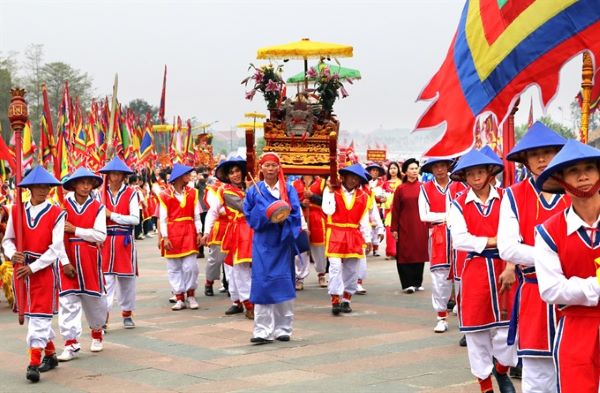
Hùng Kings Commemoration Day honoring Vietnam’s roots and the enduring spirit of its people
Reunification Day
Date: April 30
Reunification Day, also called Liberation Day, marks the fall of Saigon in 1975. This event ended the Vietnam War and reunited North and South Vietnam. The day is a strong symbol of national pride, peace, and unity. It also honors the sacrifices of those who fought for independence.
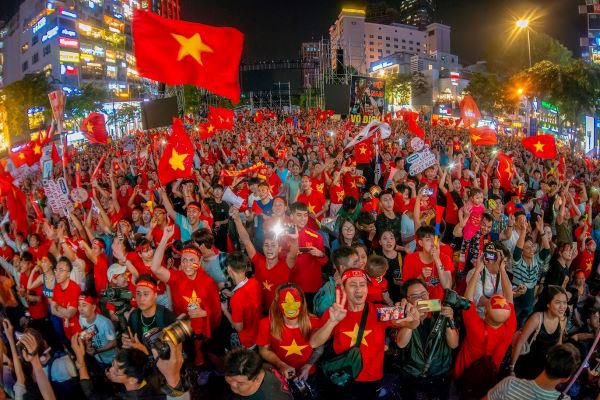
Reunification Day celebrating Vietnam’s unity, peace, and the enduring spirit of independence
The holiday lasts only one day. It often takes place together with International Labor Day on May 1. This makes the holiday period a bit longer.
Many people celebrate both holidays at the same time. This gives everyone a longer holiday break.
This gives people a longer holiday break. People across the country enjoy an extended celebration.
During this time, major cities like Hanoi, Ho Chi Minh City, and Da Nang are full of celebrations. Flag-raising ceremonies, parades, cultural shows, and fireworks fill the celebrations. Many people visit war memorials and monuments to pay tribute to heroic martyrs and veterans.
Beyond its historical significance, Reunification Day also signals the beginning of the summer tourism season. At this time, the famous Hạ Long Carnaval takes place in Quảng Ninh Province.
One of the most exciting festivals of the year, the Hạ Long Carnival draws huge crowds and vibrant energy. The festival includes art performances, street parades, and colorful fireworks. This takes place against the stunning backdrop of Hạ Long Bay, a UNESCO World Heritage Site.
It is a day not only to remember Vietnam’s past struggles but also to celebrate its peace, resilience, and progress toward a united future.
International Workers’ Day (International Labor Day)
Date: May 1
Coinciding with Reunification Day, International Workers’ Day celebrates the contributions of Vietnam’s labor force. Many workers enjoy an extended holiday during this period.
Public squares and parks often hold concerts and outdoor events organized by trade unions. Travel demand also increases as families use the long weekend to explore destinations across Vietnam.
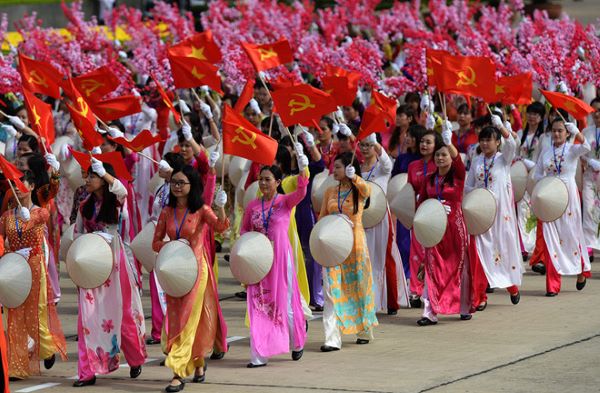
International Workers’ Day honoring Vietnam’s workforce with joy, rest, and nationwide celebrations
National Day (Independence Day)
Date: September 2
National Day celebrates Vietnam’s Declaration of Independence on September 2, 1945. On this day, President Hồ Chí Minh proclaimed the birth of the Democratic Republic of Vietnam at Ba Đình Square in Hanoi. This marked the start of a new era of freedom and independence after decades of colonial rule.
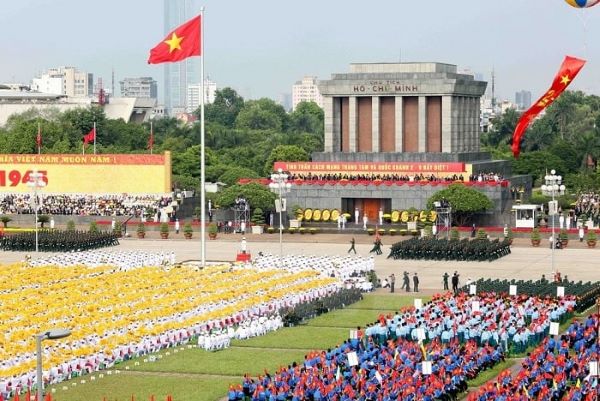
National Day a proud celebration of Vietnam’s independence, unity, and enduring spirit
Every year, National Day is celebrated across the country with flag-raising ceremonies, parades, cultural performances, and patriotic speeches. The atmosphere is especially vibrant in Hanoi, where Ba Đình Square remains the symbolic heart of the celebration. Vietnamese flags cover the streets. The red and gold colors create a beautiful scene of unity and national pride.
Communities organize many activities besides the official ceremonies. People visit and honor heroic Vietnamese mothers and families who contributed to the revolution. Charity programs and sports events also promote unity and gratitude.
For many Vietnamese, September 2 is a day of remembrance and reflection. A time to celebrate the nation’s achievements and look forward to a bright future. The day reminds everyone of Vietnam’s strong spirit of independence and resilience.
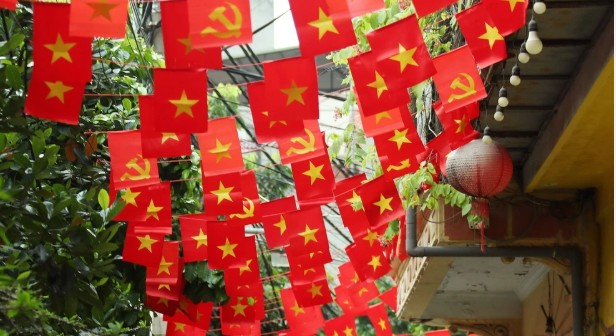
National Day a proud celebration of Vietnam’s independence, unity, and enduring spirit
Other holidays and festivals in Vietnam
Here is a list of Vietnam’s most famous traditional and cultural festivals. These events show the country’s rich heritage and diverse celebrations throughout the year.
| Date | Festival | What is special? |
| 13th Lunar January | Lim Festival | People perform Quan Ho folk singing, play fun games, wear traditional outfits, and join lively celebrations. |
| 15th Lunar January | Huong Pagoda Festival | A boat trip through limestone mountains and rice fields to Huong Tich Cave expresses religious spirit and wishes for good luck. |
| 15th Lunar January | Phu Giay Festival | Folk songs, traditional games, and various cultural activities. |
| 3rd Lunar March | Tet Han Thuc (Cold Food Festival) | Honors ancestors and the deceased; activities include making and eating banh troi (rice ball sugar cake) and banh chay (rice ball bean cake). |
| April / May / June (every 2 years) | Hue Festival | Preserves traditional customs with Ao Dai shows, art exhibitions, kite flying, and other cultural performances. |
| 8th Lunar April | Buddha’s Birthday | Pagodas are beautifully decorated; includes prayer sessions, processions, and offerings by Buddhists. |
| May 7 | Victory Over Fascism Day (Chiến Thắng Phát Xít) | This day celebrates Vietnam’s victory over French colonial rule at the Battle of Điện Biên Phủ in 1954. The victory became a historic triumph that marked national pride and independence. |
| 15th Lunar July | Wandering Souls Day | Shows respect to ancestors through pagoda visits, prayers, and preparing offerings on family altars. |
| 14th–15th Lunar August | Mid-Autumn Festival | Family reunion day with lion dances, lantern processions, and enjoying mooncakes under the full moon. |
| Every 14th Lunar Month | Hoi An Lantern Festival | In Hoi An Ancient Town, people turn off electric lights. The streets shine brightly with colorful lanterns. Visitors float paper lanterns on the river and make wishes for good luck. |
| December 25 | Christmas Day (Lễ Giáng Sinh) | Christmas is not an official public holiday in Vietnam. However, many cities still celebrate it with bright lights and colorful decorations. Churches hold special services, especially for the Christian community. |
Travel tips when coming to Vietnam on public holidays
If you plan to visit Vietnam during the festive season, here are some helpful tips. They will make your trip more enjoyable and help you experience the holidays smoothly.
- Plan ahead: During major holidays like Tết, transportation fills up quickly. Plan ahead and book your tickets early. Prices for flights, tours, and hotels can also rise quickly. Book your tickets, hotel rooms, and local tours well in advance to avoid shortages and last-minute stress.
- Expect Closures: During public holidays, most government offices, banks, and businesses close. This usually happens from Lunar December 30 to January 3. Be sure to get your passport, visa, and approval letter ready beforehand. Also, check the opening hours of the places you plan to visit.
- Join the Celebrations: If you visit Vietnam during a public holiday, immerse yourself in the local spirit! Enjoy the festive atmosphere, take part in traditional games, try special holiday dishes, and watch cultural performances.
- Be Cautious and Respectful: Traffic is usually heavy on the first and last days of major holidays. Allow extra time for travel to avoid delays. Keep your luggage and valuables safe, especially in crowded places. Some holidays, like National Day and Reunification Day, are deeply meaningful. Show respect by learning their history and following local customs.
Vietnam national holidays offer a wonderful opportunity to experience the country’s rich traditions, vibrant festivals, and warm culture. Whether you join traditional festivals like Tết or modern holidays, each celebration shows the unique spirit of Vietnam. Plan your trip wisely around these holidays to make the most of your cultural journey with Wexplore Vietnam!
If you’re looking for an urgent visa to Vietnam, our fast and reliable service helps you get approved in the shortest possible time. Whether it’s for an unexpected business trip or a spontaneous vacation, the expedited process ensures you receive your visa within hours. With a simple online application and professional assistance, Entry Vietnam Visa makes obtaining your visa quick, easy, and stress-free.
See more

